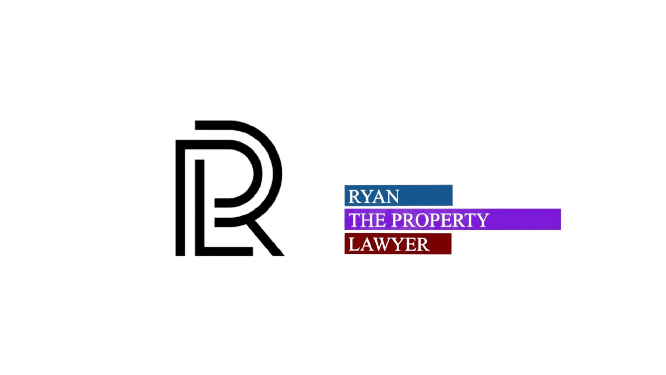The Legal Pitfalls of Short-Term Rentals. The proliferation of online platforms has made short-term rentals a popular option for property owners seeking to generate revenue from their spaces. While short-term rentals can be lucrative, property owners and landlords must be aware of a number of legal considerations and potential pitfalls. Understanding the legal environment surrounding short-term rentals is essential for avoiding legal issues and ensuring compliance with local regulations. In this article, I will examine the legal pitfalls associated with short-term rentals and provide a comprehensive guide for Toronto property owners and hosts.
adherence to zoning and bylaws
Compliance with zoning regulations and municipal ordinances is one of the primary legal considerations for short-term rentals. Zoning regulations and municipal ordinances govern how properties may be used and rented, and they may contain specific requirements for short-term rentals.
reviewing the zoning regulations
Before listing your property for short-term rentals, it is essential to research the local zoning laws. In certain areas, zoning regulations may restrict or prohibit short-term rentals or require specific permits and licenses. Familiarizing yourself with these regulations will allow you to determine if your property qualifies for short-term rentals and prevent possible legal violations.
Municipal Regulations and Permit Requirements
In addition to zoning regulations, municipal bylaws may impose further restrictions on short-term rentals. These ordinances may include restrictions on the number of occupants, pollution levels, parking, and safety requirements. Additionally, some municipalities require landlords to obtain specific licenses or permits in order to legally operate short-term rentals. It is essential to evaluate and adhere to these regulations to avoid fines or legal repercussions.
Reporting and Tax Obligations
Income from short-term rentals is taxable, and property proprietors must be aware of their tax obligations and reporting requirements. Failure to conform to tax regulations can result in fines and legal complications.
tax reporting for income
Generally, income from short-term rentals is deemed taxable income. Property proprietors must accurately disclose this income on their annual tax returns. To ensure compliance with tax regulations and take advantage of available deductions and exemptions, it is recommended to consult with a tax expert or accountant.
GST (Goods and Services Tax) or HST (Harmonized Sales Tax)
Property proprietors may be required to register for and collect Goods and Services Tax (GST) or Harmonized Sales Tax (HST) on their short-term rental transactions, depending on the rental income threshold and the nature of the rental activity. It is essential to comprehend the local requirements and adhere to the applicable tax regulations.
taxes for municipal lodging
Some municipalities have implemented short-term rental accommodation taxes or transient occupancy taxes. Municipalities may require property owners to collect and remit these taxes. It is essential to research and comprehend the local tax requirements in order to avoid incurring penalties.
Liability and Contractual Agreements
Property owners must be aware of the contractual commitments made and any potential liability issues before engaging in short-term rentals.
Renting Contracts and Conditions
It is essential to have a well-written rental agreement to secure the rights and interests of both property owners and renters. The agreement should specify the rental’s terms and conditions, including payment terms, cancellation policies, house rules, and disclaimers of liability. Consultation with an lawyer is recommended to ensure that the rental agreement complies with local laws and provides adequate protection.
Checking in with visitors and liability
Owners have a responsibility to guarantee the safety of their visitors. This includes implementing reasonable guest verification procedures to reduce the possibility of hosting problematic or hazardous individuals. Additionally, property proprietors must maintain their properties in a safe and habitable state, addressing any potential dangers or security issues. Failure to exercise reasonable care in these areas may result in legal liability if a visitor is injured or suffers property damage during his or her stay.
Rules of the Condo and Homeowner Association
It is crucial for property owners who have units in condominiums or homeowner associations to comprehend and abide by the rules and guidelines established by the organization.
Examining the HOA or condo bylaws
Frequently, condominium and homeowner association bylaws contain specific provisions for short-term rentals. Some associations may prohibit or impose restrictions on short-term rentals. Before engaging in short-term rentals, it is essential to review and comprehend these bylaws to ensure compliance and avoid fines or legal action from the association.
Transparency and communication
When engaging in short-term rentals, it is vital to maintain open communication with the condo or homeowner association. The association must be notified of the owner’s intent to rent their unit on a short-term basis, and the owner must provide any necessary documentation or information. By being open and proactive, landlords can reduce potential conflicts and ensure a more pleasant rental experience.
Getting Through the Eviction Process
The legal procedure for eviction must be understood by property owners in the unfortunate case of unruly guests or lease violations.
Causes of eviction
Property proprietors must be conversant with the grounds for eviction in their area, which are governed by local laws. Common grounds for eviction include nonpayment of rent, violation of rental conditions, and unlawful activities. It is essential to adhere to the legal eviction procedure in order to avoid potential legal consequences.
Advisory with an Eviction Lawyer
It is advisable to consult with an eviction lawyer if you experience problems with tenants or visitors because the eviction process can be complicated. A lawyer can guide you through the necessary legal procedures, ensure compliance with local laws, and defend your property ownership rights.
Conclusion
Short-term rentals can be a lucrative endeavour, but property owners and hosts must also avoid legal pitfalls. Understanding zoning and bylaw requirements, adhering to tax obligations, drafting appropriate rental agreements, and being cognizant of liability issues are essential for a successful and compliant short-term rental operation. Property owners and hosts can mitigate legal risks and enjoy a positive and profitable short-term rental experience by obtaining professional counsel, remaining informed of local regulations, and taking proactive measures to ensure compliance.
Author Profile

Latest Blog
 Uncategorised22 December 2023What Constitutes a Legal Partnership in Ontario?
Uncategorised22 December 2023What Constitutes a Legal Partnership in Ontario? Uncategorised22 December 2023Characteristics of a Corporation in Ontario
Uncategorised22 December 2023Characteristics of a Corporation in Ontario Uncategorised22 December 2023Intentions Matter When Co-Owning Property
Uncategorised22 December 2023Intentions Matter When Co-Owning Property Uncategorised22 December 2023Consequences of Operating an Ontario Partnership
Uncategorised22 December 2023Consequences of Operating an Ontario Partnership




